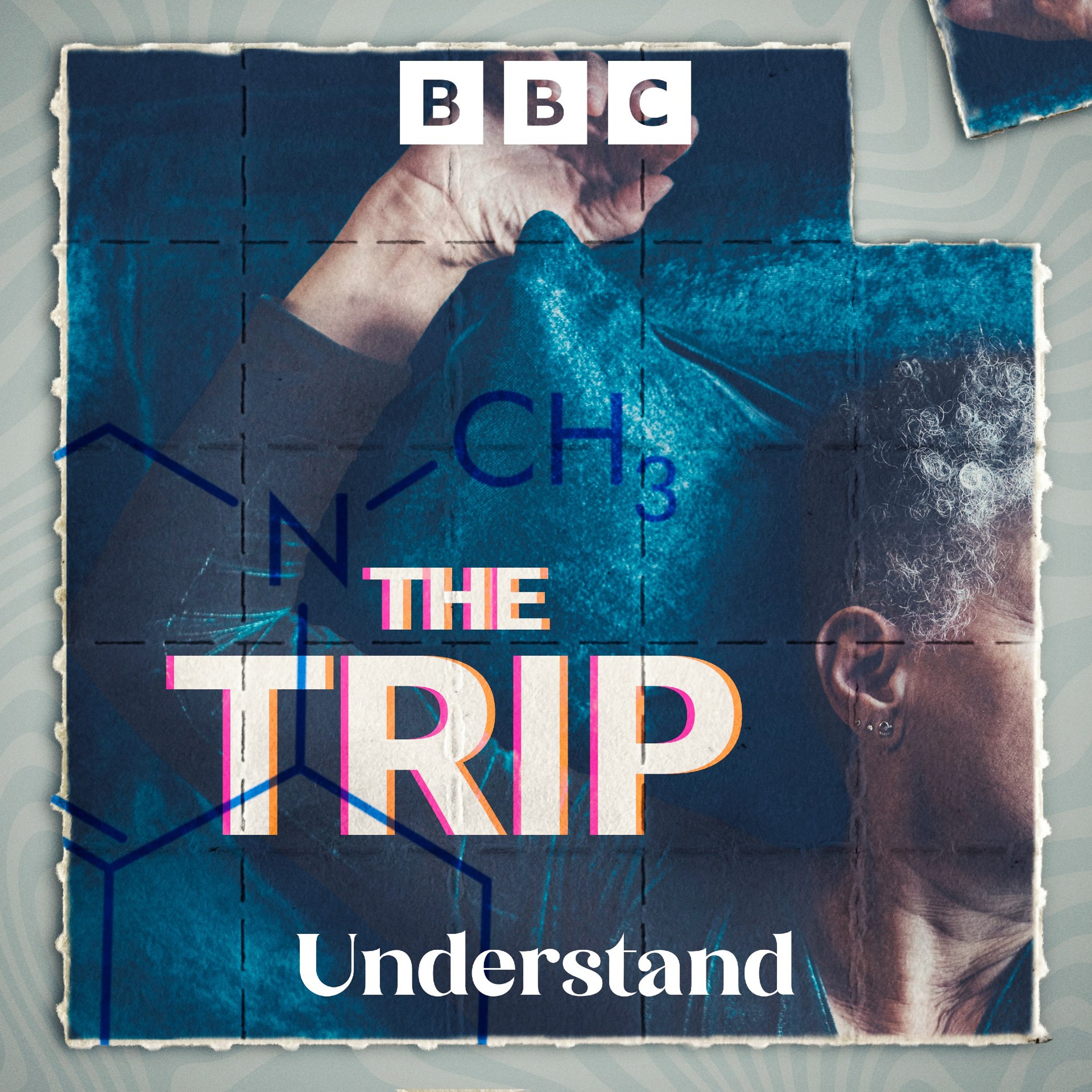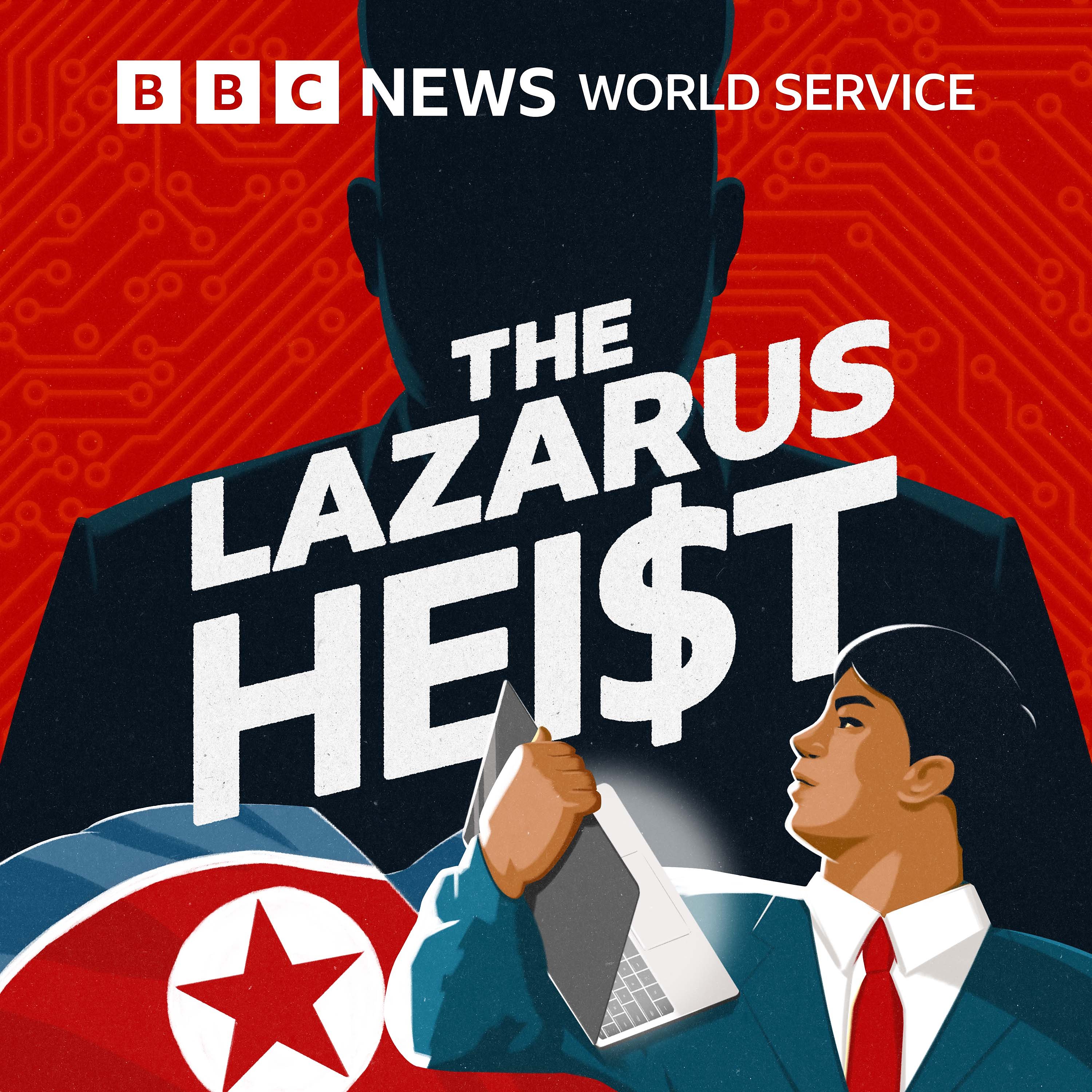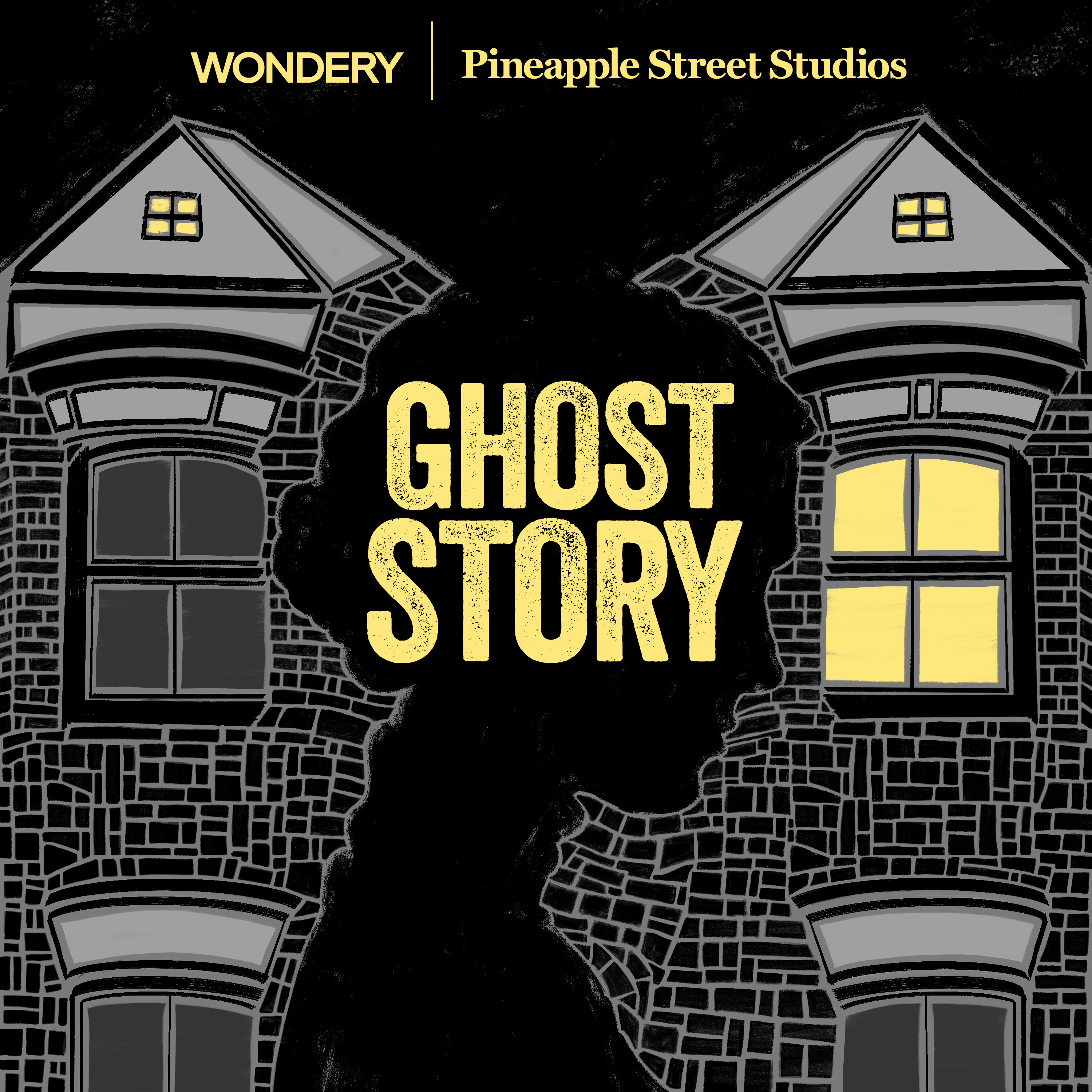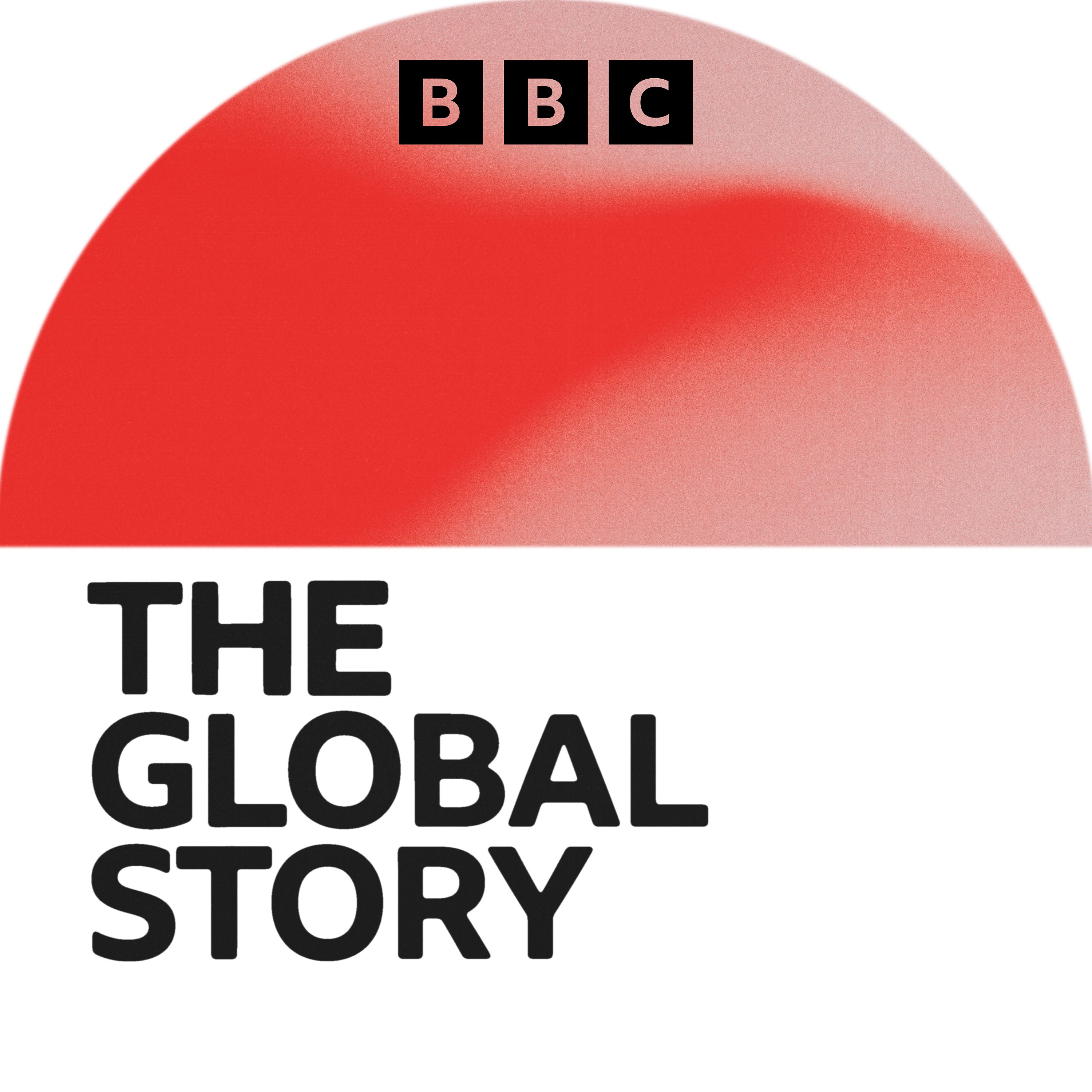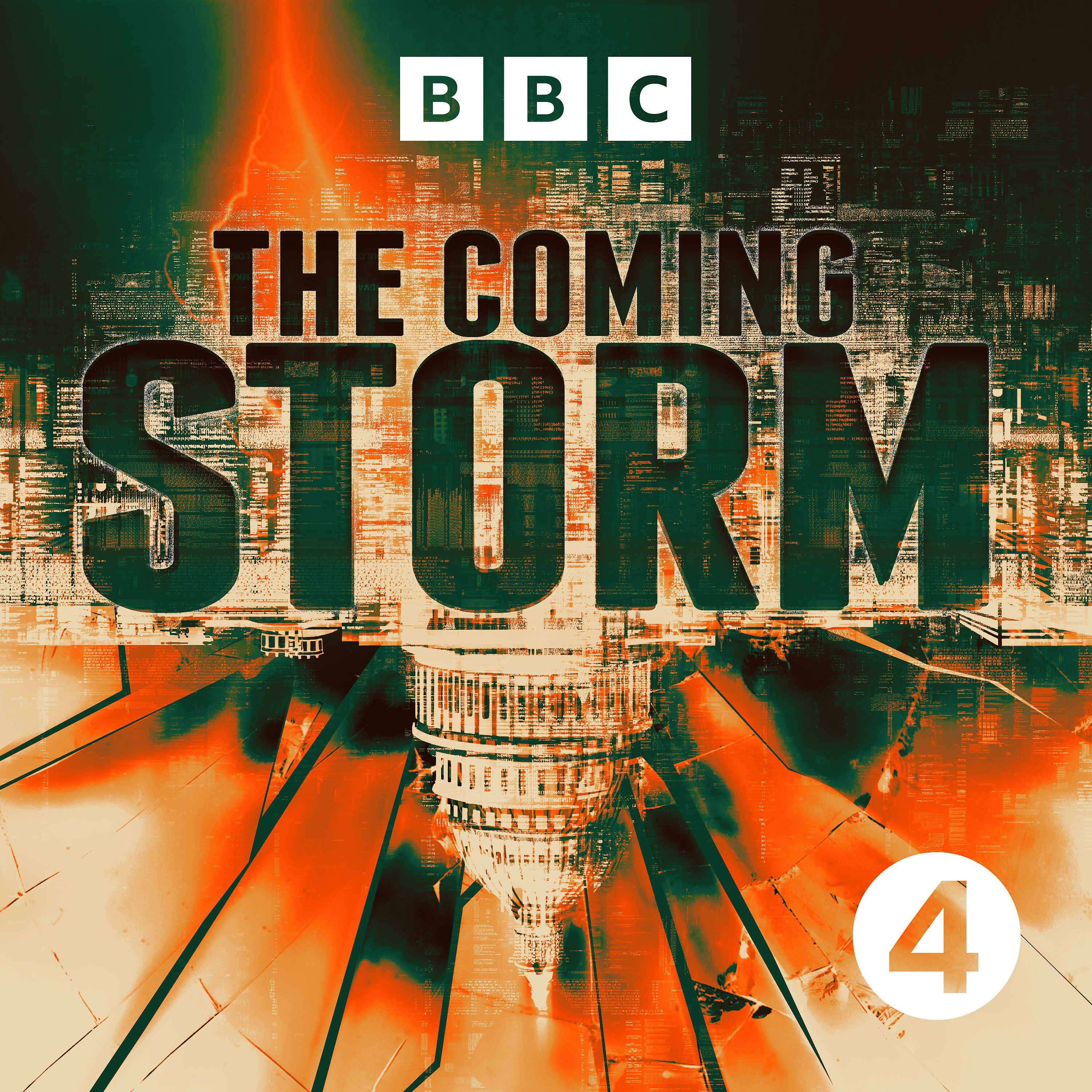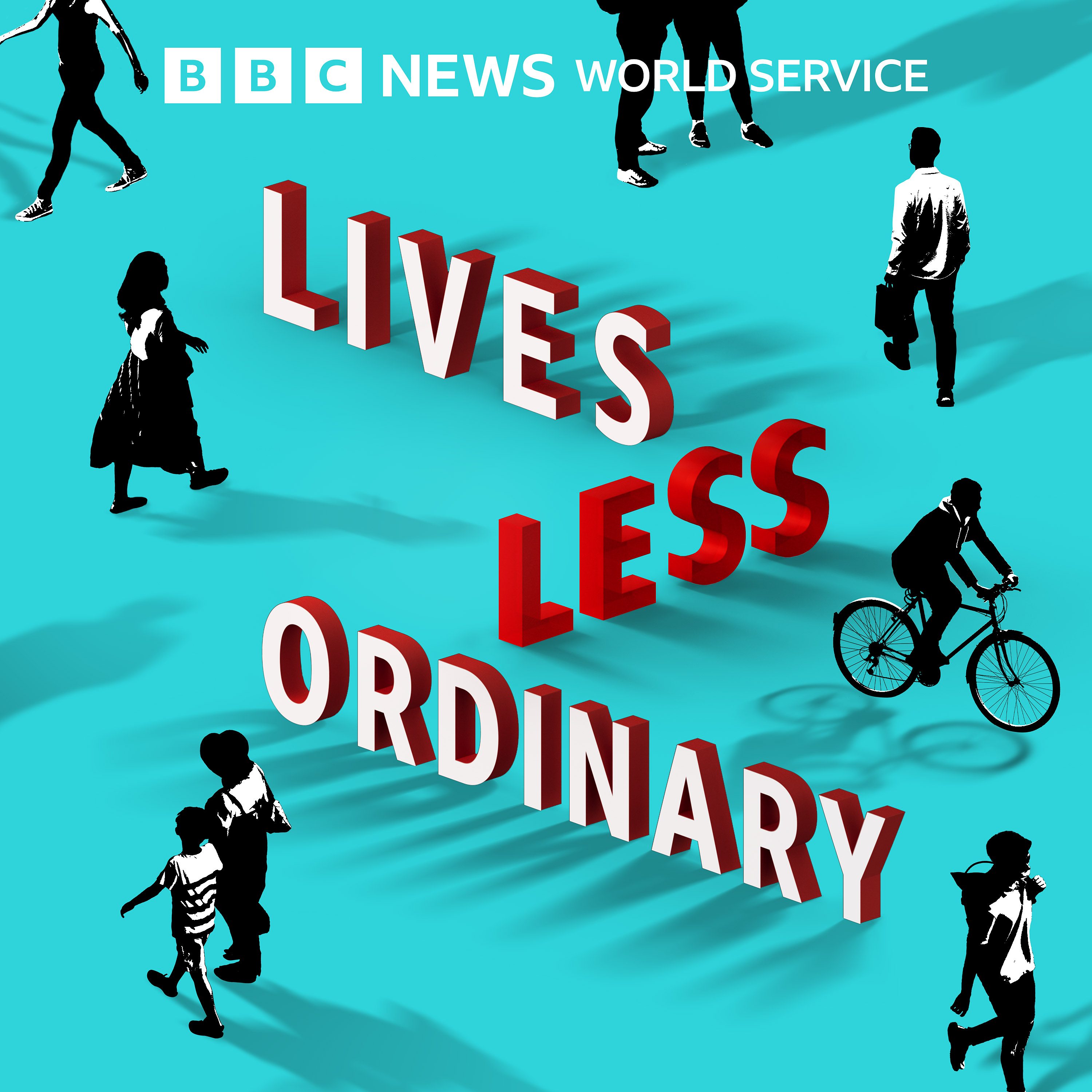
Brian's Run Pod
Welcome to Brian's Run Pod, the podcast where we lace up our running shoes and explore the exhilarating world of running. Whether you're a seasoned marathoner, a casual jogger, or just thinking about taking your first stride, this podcast is your ultimate companion on your running journey.
Join us as we dive deep into the sport of running, covering everything from training tips and race strategies to personal stories and inspiring interviews with runners from all walks of life. Whether you're looking to improve your race times, stay motivated, or simply enjoy the therapeutic rhythm of running, Brian's Run Pod has something for every runner.
Brian's Run Pod
Running Through Cancer Jason Noel interview part two
Jason Noel shares the second part of his incredible journey from brain cancer diagnosis to marathon finisher, revealing how running became his path to recovery and a complete transformation of his life priorities. His story goes beyond athletic achievement to show how facing mortality shifted his focus to what truly matters: faith, marriage and family.
• Training for a Disney half marathon while still on chemotherapy after being told by doctors it might not be possible
• Using no formal training plan for his first half marathon—simply running with a friend without tracking heart rate or following structured sessions
• Completing his first full marathon at Chicago 2023, just two years after his brain cancer diagnosis
• Fundraising creatively for brain cancer research, including his daughter's fairy garden with QR codes and partnerships with local businesses
• Setting ambitious goals including running the Berlin Marathon and potentially attempting a half Ironman triathlon
• Shifting priorities completely after cancer—from corporate success to focusing on faith, marriage and family
• Managing dark days during recovery while his family developed resilience and a grounded perspective
• Building a supportive running community that provides both accountability and meaningful conversation
Listen to part one of Jason's story in our previous episode to hear about his initial diagnosis and treatment journey.
Brian's Run Pod has become interactive with the audience. If you look at the top of the Episode description tap on "Send us a Text Message". You can tell me what you think of the episode or alternatively what you would like covered. You might even get a mention!
Instagram
So you're thinking about running, but not sure how to take the first step. My name is Brian Patterson and I'm here to help. Welcome to Brian's Rompod. Welcome back to brian's rom pod, and it's me, your host, brian patterson, now coming up on today's show.
Speaker 2:There were days where I didn't know who I was didn't, didn't know what I was saying, didn't know who I was, didn't know what was was saying, didn't know who I was, didn't know what was happening. And I'm now listening to my children play those days back for me and I have a 15-year-old, a 13-year-old and an 11-year-old. I like long runs with my friends where I can be philosophical about life and share and recap you know, what's happening in their lives with them. More than it's fun, it's a journey happening in their lives with them. More than it's fun, it's a journey Number two, recognizing that, after my relationship with God, it's my relationship with my wife and then, you know, last but certainly not least, just taking care of my family and children. The running is a tool to allow me to be better at those things.
Speaker 1:Imagine facing mortality and turning your relationship with running upside down. That's what happened to one determined runner, jason Noel. After being diagnosed with brain cancer and undergoing intense treatment in a doctor's office, he made a life-changing decision He'd run a half marathon in six months, even while still on chemotherapy. Now, in the second part of my discussion with Jason Noel, we continue with his journey of recovery with running. But this story goes beyond running achievements. It reveals deep life lessons. Before his diagnosis, he thought corporate success and titles were the most important things, but after facing brain cancer, he realised that his priorities were faith, marriage and family. Running became more than just physical therapy. For him, it was a way to heal, build communities and raise money for brain cancer research. I really do hope you enjoy our chat, and if you haven't listened to part one, then please do go back to the previous week in our catalogue. So, have you had any other seizures apart from the one that you had initially?
Speaker 2:No, no, I haven't, Thank God I haven't. And you know, at my own demise, I thought at one point, because that tumor was gone and I hadn't had a seizure, I shouldn't have to take the medicine anymore. So I would challenge these doctors to reduce that dosage I take every day and or think to myself I don't need it. But I'll tell you, it's another humbling experience because when you share a network of uh experiences, like I've had with other brain tumor patients and some of who I know have recently, you know, had recurrences and seizures, I think I'm going to pay attention and continue to take that, that medicine. But, um, you know, there are key things I don't like to. I don't like to go on long runs by myself in the fear of something happening.
Speaker 2:I don't like to travel long distances by myself, so I surround myself with what I call insulation, and that's insulation of people who understand it and get it and can be prepared in the event that the worst happens. Yeah, yeah.
Speaker 1:So you've obviously had quite a lot of treatment. You've had the 42 days and obviously there's this ongoing uh treatment with, you know, monthly cycles. So was it like going back into running, was it like starting from square one? To a certain extent, you know, like you, like you, you, you had this determination to keep moving and then obviously your fitness level did kind of uh improve.
Speaker 2:Yeah, um, so I, I was after having brain surgery, knowing that I could feel my feet. Um, I was. I was at the uh, what they call the tumor board, that's the radiation oncologist, chemo oncologist and and brain surgeon. I was there in the room with them all and I don't know what I was, what I was thinking, but I thought I'm going to run a half marathon and just uh, just uh, and and admittedly, I had never run a uh, organized half marathon in my life at that time, right, but I was like I'm going to run a half marathon. And they're like, yeah, I don't, I don't know about that. And I was like, no, no, no, I am.
Speaker 2:And so I pulled out my cell phone and I went to Disney run and they had a Disney half princess marathon coming up in like six months. And I called this, this peer of mine, tom, who I referred to earlier. Yeah, I said hey, we're going to run this half marathon on the speaker phone in the, in the doctor's office, and he's like and his wife, karen and my wife are all there. And they're like I don't know if that's going to work out that way. I was like, no, I'm, I'm signing up, I'm, I'm signing up. I'm signing up right now, so I signed up there.
Speaker 2:Um how I got in I don't know, because it feels like an act of Congress to get in some of those things. I thought, well, I guess the next thing I have to do is train. So um I'm not exaggerating when I yeah yeah, so I was taking chemotherapy and training for a half marathon for six to eight months and to this day I do not know. I don't know how I did it. I don't know, I do not know, can't explain it was you?
Speaker 1:were you doing anything systematic? Or was there any uh science behind your training? Or was it just a question of you and your guy, you and your buddy just going out and you know running?
Speaker 2:it was it, it was me and my buddy. No coach, no, uh, no. Apple training program no, german training program no, no, no speed sessions.
Speaker 1:No, no, no, nothing no.
Speaker 2:I don't think we changed, uh, any part of the science that we had, and that was hey, do you want to go run tomorrow? And we, we, we would do it other than those weekend runs.
Speaker 2:Um so you were just monitoring how, how far you were going yeah, brian, it's ridiculous because I wasn't paying attention to heart like heart rate like nothing wasn't fueling, like I just no, we just we're like well, we'll just go out here and muster this and see what we can do today and and if we, we make it, we make it, and that that's how it worked. Did you enjoy it? I loved every minute of it and still do I think that make it.
Speaker 1:That's how it worked. Did you enjoy it? I loved every minute of it and still do. I think that's probably 80-90% of it if you enjoy it.
Speaker 2:Yeah, I never really started understanding what it meant to train, if you will, yeah, and pay attention to short runs, long runs, intervals, fuel, etc. I still suck at fuel, by the way, but I never really understood any of that until I decided to run my first full marathon.
Speaker 1:So you did Chicago. Is that right? Yes, sir 23,.
Speaker 2:Chicago 23 was the first full marathon. Yes, sir, 23,.
Speaker 1:Chicago 23 was the first full marathon and um so, so that's, I mean, if we stop there, you had. 2021 is when what happened in the airport and we're looking two years on and you're you're saying to yourself I'm looking to do the Chicago marathon, so some people probably take two years to train for a marathon.
Speaker 2:Yeah, I got involved through another friend of mine who I had met through the brain tumor and brain cancer community. Fortunately we lost her. But I got involved with the American Brain Tumor Association and they are based out of Chicago and Chicago is the nearest, closest big city to me and, understanding that there was this other world out there you know the Abbott big six and stuff I was like I wonder what it would take to run a marathon and so I put my name in the lottery and didn't get in. But the American Brain Tumor Association had some slots and so I went the fundraising journey and through the ABTA they partnered with CARA, c-a-r-a out of Chicago, a huge running community, and put together a training program for everyone. And that was my first introductory to like formalized training and what it meant, to what I would say go to the big league, take it from from a you know a 10 K around the neighborhood to a half to. Okay, we're, we're entering another universe here.
Speaker 2:Any, any injuries I've had some trouble with with an IT band. Aside from that, no, no significant injuries and, knock on wood, we'll keep it that way. But yeah, it was a pretty fulfilling experience to cross that finish line for the first time as a as a marathon runner, and do it, you know, with the brain tumor, brain cancer community behind I'm always, um, I mean, I tried, um, like you said.
Speaker 1:I tried to apply for london years and years ago but I didn't get in. But I always get the feeling that people who do the majors, that they the majors, as it were um yeah they, although you know you train to do the marathon it. I kind of get the impression that you are kind of floating on air because of the support of the crowd, um, and also the fact that you know you're you're running for a charity as well.
Speaker 2:So was that the case for?
Speaker 1:you, or was it totally the opposite? It was quite painful.
Speaker 2:You know, the training is fun, but the training can be painful as well. I'll tell you the energy of a city like Chicago, which I've now done twice, or new york city, which I did with the national brain tumor society, right, um, another organization around this. But when you get to cities like those and the, you know, the two of the largest cities in america, the city shuts down and everybody comes outside to rally runners like a party.
Speaker 2:There's, it'll lift you right off the ground. I mean it is incredible, yeah, incredible, yeah, yeah. So I've now decided, after Chicago twice and Chicago last year was 30 days just short of 30 days to New York City, so I did those back to back, I decided I needed more punishment and this year I'm going to uh, run the Berlin marathon with the ABTA and the Chicago marathon, yeah, All right, I was going to ask if you were looking to do one abroad, so yeah, yeah, yeah, I, I, uh, I uh, I've applied for them all for them all yeah, um, and had this really odd feeling that I would end up in like australia or tokyo, just by lottery, because they're the furthest and most difficult to get to.
Speaker 2:Yeah, had a sigh of relief when I didn't get into either one, but I'm super excited about going to berlin yeah, yeah, that should be quite something.
Speaker 2:But you've had a thought, um, I know it's very popular these days about the ultra route, doing an ultra um, you know, I my first or only closest thing to an ultra so far was in january of this year and it was over four days. But I did the Disney dopey Right. Um. So the five K, 10 K, half and full in, um, I think, before I go the ultra route, I want to try the half Ironman, that's where my head's at.
Speaker 1:Maybe, 2026.
Speaker 2:Yeah.
Speaker 1:Okay, right, that is quite a challenge.
Speaker 2:Well, it's going to be quite the expense too. You know, between a new, you know bicycle this, that and the other, but I don't, you know, between a a new. You know, bicycle this, that, the other, but I don't know, there's something about that that feels more attractive to me than the ultra route. But not that it not that I wouldn't try them both, but I've already fixed, fixed my mind on that.
Speaker 1:Uh, half iron man, for some reason half iron man for some reason on the on the fundraising side is do you do you, do you do your own fundraising, or um is how, um, how easy is that to? To fundraising? I know, I know, sometimes when you're fundraising over here and you get a, a slot for a charity, then obviously you have to raise x number of pounds or dollars or whatever to get that slot for someone who was looking to fundraise for a charity. I mean, is there any advice you would give?
Speaker 2:yeah, number number you know after, after starting a professional career working in a non-profit yeah early in my my days with with the boy Scouts of America.
Speaker 2:What I'll tell you is that you know, charities or nonprofits are a business too, and I think people forget that right away. They have to have money to functionally operate and serve their mission or goal, and it doesn't matter what the mission or goal is, they need cashflow. And so if you're going to fundraise for a charity or nonprofit, all I can say to anybody is that, number one uh, you got to believe in what it's doing. And I know in this big six world there's a lot of people I've met several who have just taken charity slots because it's the only slot and the only way they could get into that particular run. And then you know they don't have the energy behind it necessarily to raise the funds associated with the commitment.
Speaker 2:So you got, you got to believe it. Number one. Number two so you got to believe it. Number one. Number two what I have found from experience is that the quicker you can get the baseline commitment out of the way, the more you can focus on the training. Agreed Chicago twice as well as the New York city once. I've generally gotten the money raised within about the first 90 days or so, um, that way I could put the money behind me and let it, let the money face, you know follow me versus chasing it, and chase and chase, the end result, which is the run.
Speaker 2:Yeah, okay, well, that's fine, and then you got to be creative with how you do it, whether it's you know, social media t-shirts. My daughter built a fairy garden on a local running trail here and her and her friend and we put it on social media and people go by the fairy garden and scan a QR code and we raised a couple thousand bucks from people walking the trail. All right Wow a couple thousand bucks from people walking the trail. All right, wow, yeah, yeah, it's awesome, it's all I mean.
Speaker 1:This is a nine-year-old girl at the time who said dad, I want to build a fairy garden and raise money all right, so she, so she, she built this in this trail and then, yeah to, to get in through the trail, then you have to.
Speaker 2:Right, right. Well, you didn't have to scan to get, but it was along the trail and we put, you know, put some stakes ups and some signs. So people would stop and look at the fairy garden and if they took their phone and scan the QR code, it would tell the story and then give them a link to to uh donate.
Speaker 1:So I mean entrepreneurial.
Speaker 2:Oh, oh, my gosh, it was so cool. Yeah, yeah, it's pretty awesome. But yeah, you know word, word of mouth. There's, there's, no, there's no easy recipe. I'm working with the jewelry store right now in my local town. Um, I have this thing for watches. I love watches you can't buy time.
Speaker 2:There's so much about a watch that's just significant. You know it's, it shows the precious value commodity of time or life and etc. But you can go into the jewelry store and they'll. They'll replace your watch battery for free. And if you don't, if, uh, if, if you want to pay, what they they have on the counter of the store is a box. So instead of paying them to replace the watch battery, you put your money in the box to support a charity, and right now they're supporting the ABTA on my behalf for the Berlin Marathon. So there's all kinds of creative ways to get it done.
Speaker 1:Yeah, oh, that's very clever. That's really good. Is that just a recent thing?
Speaker 2:You've had this kind of fascination of watches or no, no, I've. I've been a fan of of watches for as long as I can remember, but uh, I don't know that. Just the significance of a classic time piece and the way it's built and the the labor behind it and the love that comes with it.
Speaker 1:Yeah.
Speaker 2:And how, how it just signifies every second and every moment of every day, what you do with it and how you value it, et cetera. It's just something uniquely special.
Speaker 1:So you don't see that being a link to your marathon times or anything like that, but you see it as much more. Oh, you do.
Speaker 2:I do, I do. Yeah, without a doubt, I do.
Speaker 1:Berlin is kind of is on the card, so when, when's that happening? Do Berlin is kind of is on the cards, so when? When's that happening?
Speaker 2:Yeah. So let's see, we are in March, that training cycle will kick off in June and then September is is Berlin, so between now and then it's a lot of cross training, cycling, and then a couple half marathons. Living in Indianapolis, being home of the Indy 500, we have a big half marathon here. It takes place in May, so that'll be fun, and then there are several runs Partly on the track.
Speaker 1:Yeah, yeah, yeah.
Speaker 2:Yeah, it's a halfway point. Is the track? So, you run around the track and then go back into the city of Indy, but that's in May and then I'll go to Washington DC for a run there. So May is very uniquely special. Across the brain tumor, brain cancer community. It's a brain tumor awareness month globally, the month of so may is full of activities all right, okay, um, and in terms of, do you do?
Speaker 1:I know you, obviously you. You you're doing a bit of running and you're using these other events. You explained about the cross training. Do you do any sort of strength training to help?
Speaker 2:Yes, I suck at it, I'm not consistent with it, but I know it's a necessary evil. It's something that I've gotten myself back on the horse with in calendar year 2025. Yeah, and I need to stick to it. I need to stay more focused on it. The IT ban issue it's helping that issue, naturally, but, yeah, I've got to stick with it. Thank you for the friendly reminder, Brian.
Speaker 1:I'm terribly at it. I mean I'm carrying an injury with my hips. I haven't been running and I'm trying to get over it. I'm getting over a cold which I've just inherited in the last couple of days, so I haven't been running uh as much. But um, so so is it. Do you have any? You said you were thinking of doing the half Ironman. Is there any goals that you have beyond that? Because I understand that? I mean talking to you now. It seems that you know setting yourself targets and goals has very much been an integral part of your recovery has very much been an integral part of your recovery.
Speaker 2:You know, even being here today is a goal or an opportunity for me to further being an advocate for this community.
Speaker 2:And I appreciate you inviting me, but as I look at goals, I would love to complete all major six now I guess seven and do it on behalf of this community and, as Pitbull says, take it worldwide right the message associated with brain tumors and brain cancer awareness. That's a goal, but you know, I think the goal that continues. The two or three goals that continue to stick out to me are number one my faith journey.
Speaker 1:Yeah.
Speaker 2:Um, it's a journey, Uh, number two, um, you know, recognizing that, after my relationship with God, it's uh my relationship with my wife.
Speaker 1:Yeah.
Speaker 2:And then and then, you know, last but certainly not least, just taking care of my family and children. Um, the, the running is a, is a is a tool to allow me to be better at those things, um, and in terms of taking care of me as well. But those, those are my real goal. Uh, these other things are, are, I wouldn't call them hobbies, they're they're, but they're definitely goals, um, but um, I'm not sure I would even see a difference between hobby and goal now that I think about it, but those are, those are the most important things to me, Um, on an ongoing basis, those, those three relationships, spiritual relationship with my spouse and children.
Speaker 1:Yeah, and I think you've kept things very simple. You haven't sort of I know in for anyone to have those challenges in your life, um, to overcome them. You've, you've, you've kept things, the. The message has been very simple to you know, to yourself, as it were you know, even if it means that I'm going to get out of bed initially, and then, two years on, you know, you're, you're, you're looking at completing marathons. So I kind of get that impression that it has.
Speaker 2:It's, it's um, it's very clearly defined and it's quite simple yeah, before the Before the first cancer diagnosis and even after that, I was like you know a lot of folks that the things I thought were important were to me at the time but I didn't realize how small they were in the big picture, you know, and that was climbing the corporate ladder titles, salaries, et cetera and I worked for some amazing leaders and some amazing organizations and got to travel the globe and just thought I had it all and then got knocked down a little bit by the health journey and quickly being married to the preacher's daughter and having an opportunity to look at myself in the mirror, think about her, think about him, think about my own parents, et cetera.
Speaker 2:I started this self-discovery progress right away after being diagnosed with a brain tumor and I kept a journal and social media as the outlet. But the idea behind it was that I wanted to find, in the spirit of 42, I wanted to come up with what I called 42 life, you know life lessons that I put you know context around that would really become kind of the chapters of these 42 thoughts that have gotten me up to that point and can carry me forward. And you know whether that's a journal, a future book or whatever it may be.
Speaker 2:It was a great experience to stop and reflect and think about those lessons and use writing as a way to do it.
Speaker 1:Right. Were there any dark days along that journey. Several, several Okay.
Speaker 2:Yeah, yeah, yeah, several days or um along that journey, several, okay, several, okay, several, yeah, yeah, yeah, several. I I would challenge anyone that has been through cancer of any kind or, uh, yeah, you know significant health setback to tell me there aren't.
Speaker 1:I just I don't believe it. I don't believe it. And also, it's not just it impacts on you, but it also impacts on your family as well, so it must have been quite tough.
Speaker 2:Absolutely. There were days where I didn't know who I was.
Speaker 1:Yeah.
Speaker 2:Didn't know what I was saying, didn't know who I was, didn't know what was happening. And you know I'm now listening to my children play those days back for me. And I have a 15-year-, a 13 year old and 11 year old Well, or this is this would have at the time been like a six year old and nine year old and 11. You know, if you, if you kind of back it up, and I just can't imagine the stories that they say and think, gosh, really Okay, that's crazy.
Speaker 1:It must've been a bit scary for them as well, or not?
Speaker 2:Yeah, I'm sure it was, and I'll also say that they have just such a wonderful mother and support mechanism today and yesterday and will tomorrow around them that it has not seemed to affect them long-term at all. And yet they're just incredibly powerful young people who get things differently than a lot of kids their age, witnessing some of the experiences they've had.
Speaker 1:So it's made them quite grounded, I suppose. Yeah Well, we're coming very much to nearly the end of the podcast and I think you've come up with some excellent pointers and lessons for people out there who are very much going through a similar experience, who are very much going through a similar experience. Now, I know as part of the I didn't include this as part of the outline, but I thought I'd give maybe a few quickfire questions, if that's okay with you Okay, okay, so do you have a sporting icon?
Speaker 2:Sporting icon. Do I have a sporting? I'll say it's changed over the years, but somebody today who's just continuing to demonstrate icon status would be patrick mahal right, and he, he is, and, and who is he? He is a quarterback for the kansas city chiefs.
Speaker 1:Oh yes, sorry, yes, I should know that we are on other sides of the pond. We are, yeah, I know, but then they have won, I think, the last three of three out of four super bowls, isn't it so?
Speaker 2:they won two back to back and then one year before or two years prior, and they were, they were set to to be the first to win three Super Bowls in a row, but they had a bad day at the office.
Speaker 1:Yeah, my eldest daughter, who is a Taylor Swift fan, so she knows. Oh yeah, travis.
Speaker 2:Kelsey, yeah, taylor.
Speaker 1:Swift, travis, kelsey. Yeah exactly, do you have a favorite running route?
Speaker 2:Running what.
Speaker 1:Route? Yeah, I do. And why is it your favorite?
Speaker 2:I see a lot of familiar faces.
Speaker 1:Yes.
Speaker 2:It starts and stops at my house. Oh, okay, familiar faces yes, uh, it starts and stops at my house, and it takes me through, uh uh, a great great route through my town, and I just love where I live, and so it's, it's yeah.
Speaker 1:Okay, and do you have a favorite? Uh, do you listen to music when you're running, or is that?
Speaker 2:and if so, what kind of music do you listen to? Yeah, so I listen to music. Uh, sometimes I also run with groups of people oh yeah, and have conversation um as far as what type of music I listen to. Um, it's a variety. I use Apple music and I'll just say Apple play music I like.
Speaker 2:And it figures out through the algorithm. But on hard days there's a few songs that I like a lot that will push me through. One of them's called Push Comes to Shove from an American iconic rock band called Jackal. But yeah, I listened to everything.
Speaker 1:I mean. Just one last question is that do you like the I know sometimes or whenever I do sort of like an interval session or a speed session or something like that, something that varies? Do you prefer that to, let's say, a longer run, or do you like a longer run with your friends where you can talk to other people? I don't know what. What's your preference?
Speaker 2:yeah, I like long runs with my friends where I can be philosophical about life and share and recap. You know what's happening in their lives with them more than it's fun okay um, and I and I run with some really amazing people.
Speaker 2:In fact, right now, for the last couple years, I mostly run with all women and it's uh and uh, it's they get. They get up early in the morning and I get up early and they're there every single time and they don't miss a beat. And uh, if I'm slacking, they're like uh-uh, pick it up, they're, they're just, they're good, they're, they're amazing, they're amazing, they're fun, and they all have wonderful husbands who I I get along with perfectly and it's like it's just, it's fun, it's fun so are you when you're going to Berlin, are you going with a group, with your training group?
Speaker 2:So I'm going with my friend Tom, who I referenced a few times, and then I'll also be there with a woman and her husband, and she is a training partner of mine.
Speaker 1:Right.
Speaker 2:We went together as families, uh, we together as, uh, as families, and I guess, if you will, and ran that marathon together and just just a great woman, Um but um. Occupational therapist that actually specializes in working with people with traumatic brain injury.
Speaker 1:Okay.
Speaker 2:And uh, so I I feel I feel very comfortable running with her and there's a safety net in the back of my head.
Speaker 1:that's like, oh, okay, yeah, if anything happens, yeah, okay. Well, I just wanted to say thank you, thanks a million for agreeing to come, and you've had a remarkable story. I've certainly learned a few things. I know it's something that's quite close to my heart. Thank you very much my pleasure.
Speaker 2:Thank you, sir.






